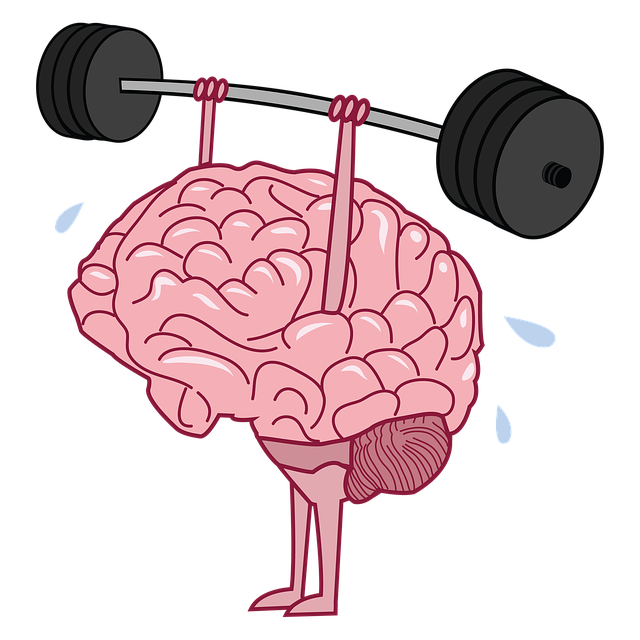Littleton Chronic Illness Therapy focuses on emotion regulation as a core therapeutic tool, teaching stress reduction, positive thinking, and communication skills. This holistic approach combines cognitive-behavioral therapy, mindfulness, and inner strength development to empower patients in managing their emotional challenges. By integrating techniques like meditation and emotional intelligence into daily life, individuals gain self-awareness, resilience, and improved well-being, fostering a transformative journey towards thriving with chronic illness.
Emotion regulation is a vital skill, especially for those living with chronic illnesses. This article explores effective techniques, drawing from the Littleton Chronic Illness Therapy approach, offering a comprehensive guide to managing emotions daily. We’ll delve into the significance of emotional well-being, practical strategies, and their impact on personal growth. By understanding and applying these methods, individuals can enhance their resilience, navigate challenges, and embark on a journey of self-discovery, mirroring the transformative power of Littleton Chronic Illness Therapy.
- Understanding Emotion Regulation and its Significance
- The Littleton Chronic Illness Therapy Approach
- Practical Techniques for Daily Life
- Benefits, Challenges, and Personal Growth Journey
Understanding Emotion Regulation and its Significance

Emotion regulation is a crucial skill that involves recognizing, understanding, and managing one’s emotions effectively. It plays a significant role in maintaining mental well-being, especially for individuals dealing with chronic illnesses. At Littleton Chronic Illness Therapy, we recognize that illness can bring about a whirlwind of emotions, from frustration and anger to anxiety and depression. Thus, teaching emotion regulation techniques is a vital part of our therapeutic approach.
By learning stress reduction methods, fostering positive thinking, and adopting effective communication strategies, patients can gain control over their emotional responses. This process empowers them to navigate challenging situations with greater resilience and adaptability. Ultimately, these skills enable individuals to enhance their overall quality of life, promoting better coping mechanisms in the face of chronic illness.
The Littleton Chronic Illness Therapy Approach

The Littleton Chronic Illness Therapy Approach is a comprehensive framework designed to help individuals manage and overcome emotional challenges associated with chronic illnesses. This approach recognizes that living with a long-term health condition can take a significant toll on one’s mental well-being, often leading to complex emotions such as anxiety, depression, or frustration. The therapy focuses on empowering patients to develop effective coping strategies and enhance their overall resilience.
This method integrates various techniques from cognitive-behavioral therapy, mindfulness practices, and inner strength development. Healthcare providers are trained in cultural competency, enabling them to offer tailored support that respects individual beliefs and backgrounds. Additionally, Risk Management Planning for Mental Health Professionals is a key component, ensuring practitioners can safely guide patients through intense emotions. By combining these strategies, the Littleton Chronic Illness Therapy Approach aims to not only treat symptoms but also foster personal growth and improved quality of life for those navigating chronic illnesses.
Practical Techniques for Daily Life

Incorporating emotion regulation techniques into daily life can significantly enhance overall well-being, especially for individuals managing chronic illnesses. At Littleton Chronic Illness Therapy, we emphasize practical strategies that empower clients to navigate emotional challenges effectively. One widely recognized method is Mindfulness Meditation, which encourages staying present and observing thoughts without judgment. This technique fosters self-awareness, allowing individuals to recognize and manage intense emotions before they escalate.
Emotional Intelligence plays a pivotal role in emotion regulation. Our therapists guide clients in developing skills to identify, understand, and manage their emotions, as well as empathize with others. Incorporating these strategies into daily routines can lead to improved mental resilience, better stress management, and enhanced relationships, ultimately contributing to a more fulfilling life despite the challenges posed by chronic illnesses.
Benefits, Challenges, and Personal Growth Journey

Emotion regulation techniques teaching offers a powerful tool for personal growth and well-being, especially for those navigating challenges like chronic illness. At Littleton Chronic Illness Therapy, we recognize that managing emotions effectively can significantly enhance quality of life. By learning these skills, individuals gain a deeper understanding of their emotional responses, enabling them to make sense of their feelings and react in healthier ways. This process fosters resilience, reducing the impact of stress and difficult emotions associated with illness.
Despite its numerous benefits, emotion regulation isn’t without challenges. It requires dedication, self-awareness, and often a willingness to confront deep-seated patterns. Developing a personalized self-care routine becomes essential, incorporating practices like mindfulness meditation, journaling, or engaging in creative outlets—all contributing to a stronger sense of self and increased confidence. As individuals cultivate compassion towards themselves and others through compassion cultivation practices, they embark on a transformative journey that empowers them to thrive even amidst adversity.
Emotion regulation is a powerful tool for enhancing quality of life, especially for those living with chronic illnesses. The Littleton Chronic Illness Therapy Approach offers a comprehensive framework, combining understanding and practical techniques to empower individuals in managing their emotions effectively. By integrating these strategies into daily routines, folks can experience improved well-being, better cope with challenges, and embark on a journey of personal growth. This holistic approach, inspired by the Littleton Chronic Illness Therapy methodology, has the potential to revolutionize how we navigate life’s emotional landscapes.











